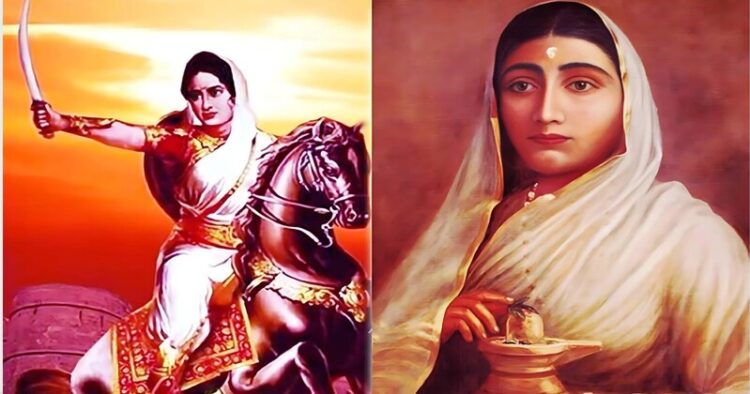Devi Ahilyabai’s life epitomised the essence of selfless service and commitment to righteousness. From her humble origins as a village girl to ascending as a revered ruler, her journey is a testament to the power of resilience and integrity. She governed under the divine seal of “Shankar Ajnevarun,” administering with compassion and foresight.
Sarkaryavah of the Rashtriya Swayamsevak Sangh (RSS) Dattatreya Hosabale, lauded Ahilyabai’s selfless service to mankind and her commitment to righteousness. Renowned for her social reforms and welfare measures, Devi Ahilyabai championed the cause of the marginalised, including landless farmers, tribal communities, and widows. Her administration was characterised by initiatives aimed at fostering harmony, justice, and prosperity for all sections of society.
Born in the humble village of Chondi in Jamkhed, Ahmednagar, Ahilyabai’s legacy continues to inspire generations even today.
Ahilyabai’s life story is nothing short of a saga of resilience, courage, and leadership. Despite being born into a non-royal family, her destiny took a dramatic turn when she caught the attention of Malhar Rao Holkar, a nobleman from the Malwa kingdom. Recognising her exceptional qualities of kindness and strength of character, Malhar Rao proposed her marriage to his son, Khanderao Holkar, at the tender age of eight.
However, tragedy struck early in Ahilyabai’s life when her husband was killed in battle, leaving her a widow at the age of 29. Despite the prevailing custom of Sati, Ahilyabai’s father-in-law, Malhar Rao, forbade her from self-immolation, becoming her strongest support during those trying times.
Ahilyabai’s journey as a ruler began when she ascended the throne of Indore after petitioning the Peshwa following her son’s untimely demise. Her reign marked a period of prosperity and progress for the Malwa kingdom. Under her leadership, Indore transformed from a tiny village into a bustling city, with significant developments in infrastructure, industry, and culture.
Known for her philanthropy and devotion to Dharma, Ahilyabai left an indelible mark on the landscape of Malwa. She undertook numerous projects for the welfare of her people, including the construction of forts, roads, temples, and dharamshalas. Her patronage of art and culture attracted renowned poets, scholars, and artists to her court, enriching the cultural tapestry of the region.
Ahilyabai’s governance was characterised by accessibility and empathy towards her subjects. She held daily public audiences to address the grievances of her people and provided guidance and support to those in need. Her inclusive policies earned her the respect and reverence of Hindus and Muslims alike.
Despite her progressive outlook, Ahilyabai’s reign was not without sorrow. She lamented the practice of Sati, particularly when her own daughter performed it upon her husband’s death. Nevertheless, her commitment to social justice and compassion remained unwavering throughout her rule.
Ahilyabai’s legacy endures through the numerous temples, dharamshalas, and social welfare initiatives she initiated. To honour her memory, the Indian government issued a commemorative stamp in 1996, and Indore’s domestic airport was named Devi Ahilyabai Holkar Airport. Additionally, the Indore university was renamed Devi Ahilya Vishwavidyalaya, ensuring that her contributions are remembered and celebrated for generations to come.
Her tireless efforts earned her the title of “Punya Shlok,” symbolising her pivotal role in revitalising these revered places and upholding the nation’s spiritual heritage.
On the auspicious occasion of Devi Ahilyabai’s 300th birth anniversary, Hosabley ji called upon all RSS swayamsevaks and members of society to actively participate in commemorative programmes. He emphasized that the true tribute to her legacy lies in embodying the values of simplicity, integrity, religiosity, and national pride exemplified by her illustrious life.
Devi Ahilyabai’s enduring legacy continues to resonate in contemporary society, serving as a guiding light for individuals striving to emulate her ideals of selfless service and unwavering commitment to the welfare of all. As the nation pays homage to this extraordinary ruler, her timeless virtues serve as a beacon of hope and inspiration for generations to come.
The 300th birth anniversary celebrations of Punyashlok Devi Ahilyabai Holkar serve as a poignant reminder of her indelible imprint on India’s history and her enduring legacy as a beacon of righteousness and governance excellence.




















Comments